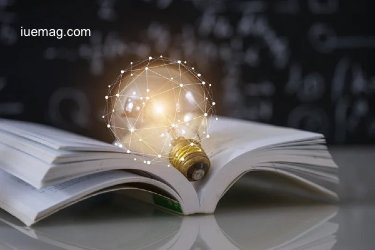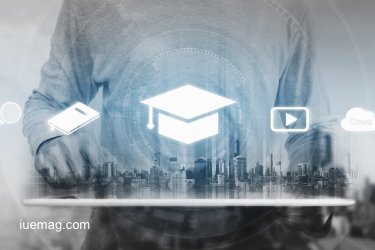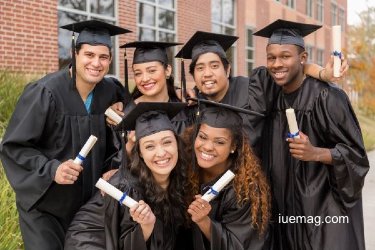

The Future of Education: A Decade of Transformation
 Education has always been the mirror of civilization. It has evolved from oral traditions whispered around fires to the disciplined rows of industrial-age classrooms; from the invention of the printing press to the explosion of online learning. Each era has redefined not only how we teach but also who we become as societies.
Education has always been the mirror of civilization. It has evolved from oral traditions whispered around fires to the disciplined rows of industrial-age classrooms; from the invention of the printing press to the explosion of online learning. Each era has redefined not only how we teach but also who we become as societies. Now, as we approach 2035, education is standing at another great inflection point. Artificial Intelligence, globalization, and the growing demand for purpose are forcing us to rethink the very foundations of learning. No longer is it enough to memorize facts or collect degrees or get top school supplies for kids; the future calls for adaptable, resilient, and purposeful humans.
This article brings together ten emerging perspectives on education’s transformation — a vision of where learning is heading and how it can shape not just careers, but lives of meaning.
The Classroom of 2035: Human Wisdom Meets AI
Step into a classroom of the future and you’ll notice something profound. Students are no longer seated in rigid rows; they work in clusters, connected to peers across continents through holographic displays. AI systems provide instant feedback, track progress, and design personalized paths for every learner.
Yet the teacher remains — not as a lecturer, but as a mentor, guide, and source of inspiration. Machines deliver knowledge, but humans provide wisdom. This blended classroom demonstrates the central theme of the future: technology as a partner, not a replacement.
From Chalkboards to Chatbots: The Long Arc of Education
The journey to this moment has been centuries in the making. Oral traditions gave way to the written word; chalkboards became symbols of industrial schooling; and the internet opened access to global knowledge. Eventually chalkboards evolved to chatbots. Now, AI-driven tutors and chatbots represent the next stage of evolution.
 Each stage widened the circle of learners while raising new challenges. The printing press democratized knowledge but left gaps of access. The digital age connected billions but created screen fatigue and inequities. The AI era, too, carries risks — but its promise of personalization and universality is unmatched.
Each stage widened the circle of learners while raising new challenges. The printing press democratized knowledge but left gaps of access. The digital age connected billions but created screen fatigue and inequities. The AI era, too, carries risks — but its promise of personalization and universality is unmatched.Personalized Learning at Scale
For centuries, personalized education was a privilege of the wealthy, delivered through private tutors. AI has shattered that exclusivity. Adaptive systems can now analyze a learner’s pace and strengths in real time, adjusting lessons accordingly. A struggling student is guided patiently, while a gifted one is challenged further.
This shift democratizes education, making tailored learning accessible to millions. But it also raises crucial questions: How do we ensure equal access? How do we protect data privacy? The answers will determine whether adaptive education becomes a tool for empowerment or exclusion.
The Death of Memorization: Rise of Critical Thinking
Memorization once defined intelligence. Exams rewarded recall, and success was measured in facts retained. But in a world where AI retrieves information instantly, memorization is no longer enough.
The new currency of intelligence is critical thinking — the ability to question, analyze, and apply knowledge responsibly. Schools are beginning to move from rote learning to problem-solving, creativity, and ethical reasoning. The challenge now is to reshape curricula and assessments so they measure not “what you know” but “what you can do with what you know.”
Hybrid Futures: Blending Online and Offline
The pandemic proved that online learning could scale overnight, but it also revealed its limits — lack of human connection, inequities in access, and digital fatigue. At the same time, purely offline education feels outdated in a global, digital-first world.
 The future is hybrid: a blend of online efficiency and offline depth. Students might learn theory through AI-driven platforms, then apply it in physical labs with mentors. A single course could mix digital lectures, local discussions, and international collaborations. Hybrid education isn’t a compromise — it’s a fuller ecosystem.
The future is hybrid: a blend of online efficiency and offline depth. Students might learn theory through AI-driven platforms, then apply it in physical labs with mentors. A single course could mix digital lectures, local discussions, and international collaborations. Hybrid education isn’t a compromise — it’s a fuller ecosystem.Teaching the Unteachable: Life Skills and Emotional Intelligence
Perhaps the most radical change is the recognition that education must go beyond academics. Life skills — empathy, resilience, financial literacy, ethical decision-making — are no longer optional. Emotional intelligence is becoming as important as IQ.
These skills cannot be memorized from textbooks; they must be practiced through mentorship, reflection, and real-world projects. Schools that integrate social-emotional learning are already reporting not only higher academic success but healthier, more confident students. The “unteachable” is proving teachable after all.
From Teachers to Learning Coaches
As AI takes over routine grading and lecture delivery, teachers are stepping into a more human-centered role. They are becoming learning coaches: mentors who nurture curiosity, guide reflection, and help students discover purpose.
This evolution requires new training, new mindsets, and systemic support. But far from making teachers obsolete, AI is making them more essential. In a world of abundant information, it is the coach who helps learners interpret, apply, and live with meaning.
Global Classrooms: Breaking Borders
Geography once dictated opportunity. Today, a student in a rural village can attend the same online course as someone in a global capital. AI translation removes language barriers. Collaborative projects connect peers across continents.
Global classrooms are building cultural empathy and shared problem-solving capacity. A young coder in Nigeria can work with a peer in Japan to solve climate challenges, while both learn from a mentor in Europe. The result is not only better learning but a stronger sense of global citizenship.
The Lifelong Learner Revolution
 Graduation is no longer the end of education. In a world where skills expire quickly, lifelong learning has become a necessity. Careers change, industries shift, and individuals must constantly reskill.
Graduation is no longer the end of education. In a world where skills expire quickly, lifelong learning has become a necessity. Careers change, industries shift, and individuals must constantly reskill.But beyond necessity, lifelong learning is becoming a choice — a way for people to pursue passions, remain curious, and grow personally. With micro-courses, podcasts, and online platforms, education now fits into daily life. The question has shifted from “What did you study?” to “What are you learning now?”
Education as Empowerment
The ultimate shift is philosophical: education is not just about careers, but about empowerment. It is about preparing individuals not just to earn a living, but to live with purpose.
Schools of the future must become launchpads for meaning. They must connect academics with ethics, skills with service, and careers with calling. The true measure of success will not be job placement but impact — on communities, on societies, and on the planet.
A New Vision for Education
Taken together, these ten perspectives paint a bold vision:
1. Education will be personalized yet universal.
2. It will be technology-driven yet deeply human.
3. It will be practical yet purposeful.
4. It will prepare learners not just for jobs, but for life.
The classroom of 2035 will not belong to machines or humans alone. It will belong to both, a shared space where algorithms guide learning but wisdom guides life. The global classroom will prepare citizens not just for nations but for humanity. And lifelong learning will ensure that curiosity, not certificates, defines education.
The future of education is not only about smarter students. It is about wiser societies. If we embrace this transformation with courage and care, education can become what it was always meant to be: the most powerful tool we have to shape not just careers, but lives of purpose and communities of hope.
Copyrights © 2026 Inspiration Unlimited - iU - Online Global Positivity Media
Any facts, figures or references stated here are made by the author & don't reflect the endorsement of iU at all times unless otherwise drafted by official staff at iU. A part [small/large] could be AI generated content at times and it's inevitable today. If you have a feedback particularly with regards to that, feel free to let us know. This article was first published here on 25th September 2025.
Want to Publish About Your Business / Achievements
Let's Discuss Right Away!

All chats are end-to-end encrypted by WhatsApp and won't be shared anywhere [won't be stored either].

